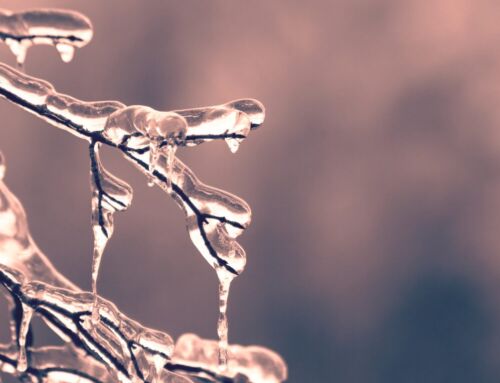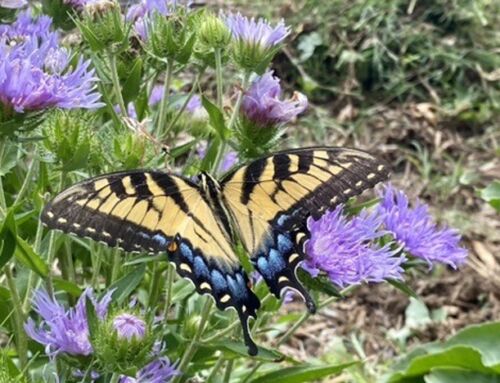February has arrived, bringing with it early signs of spring—like cheerful yellow crocus bulbs peeking through the ground and bluebirds eyeing nest boxes for the season ahead.
With these signs come warmer days that may tempt us into thinking winter is over. We might be eager to put away our heavy coats and boots in favor of shorts and t-shirts but Mother Nature will remind us, “Not so fast!” After a brief 75-degree stretch, the temperature will likely drop back into the 30s. Best to keep those coats handy for now.
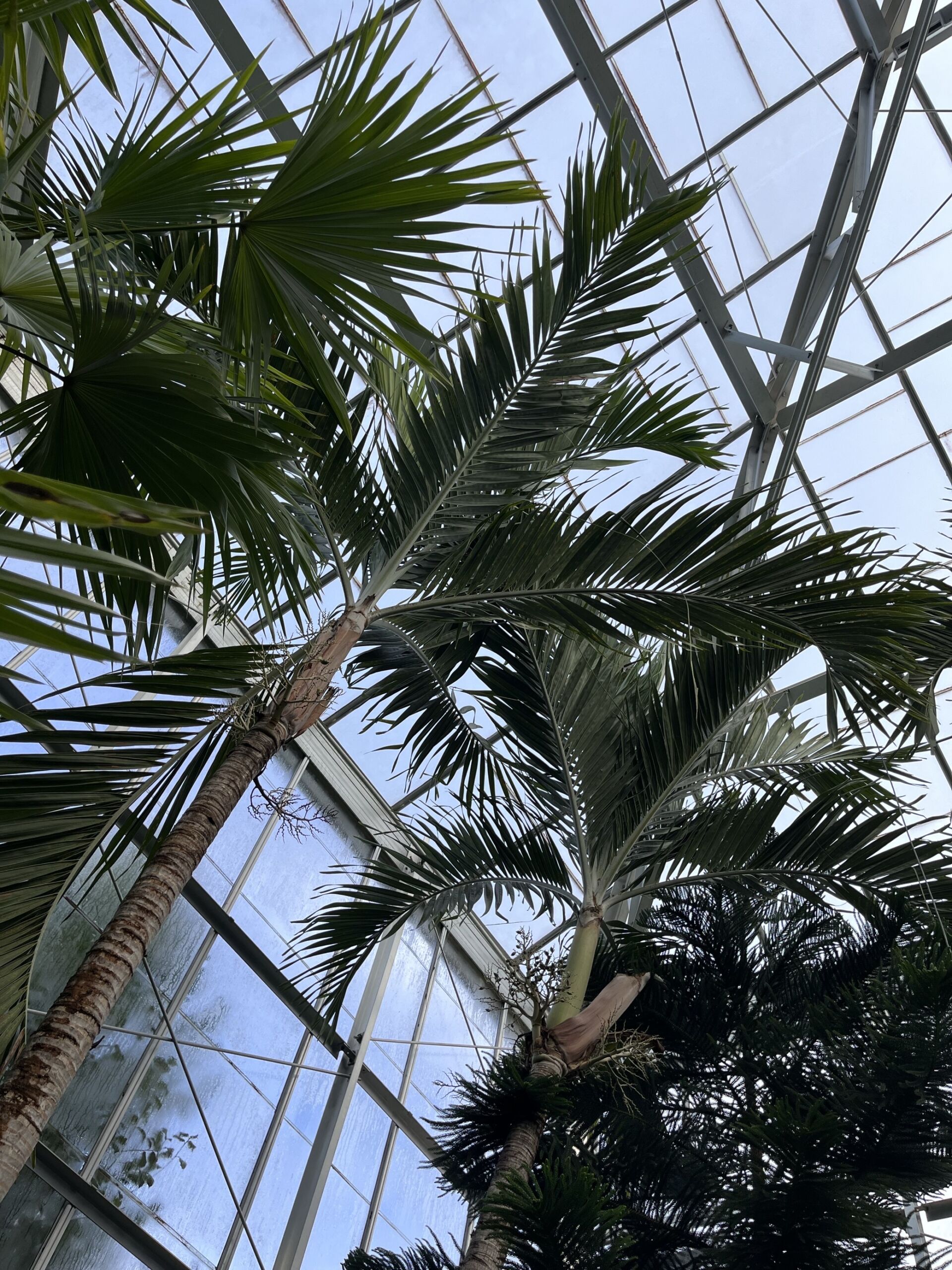
Palm Tree (Photo by Allyssa Boerngen, Garden Horticulturist)
The weather whiplash might have us all dreaming of a tropical getaway, where palm trees, sunny days and tropical drinks are in endless supply. But planning such a trip can be time-consuming and expensive, and who wants to deal with crowded airports during cold and flu season?
That’s why we at Daniel Stowe Botanical Garden have been doing some planning of our own and invite you to take a Trip to the Tropics right here at our Williamson Conservatory, where the temperature is always a perfect 72 degrees and you’ll be surrounded by lush tropical plants, soothing water features and zero rain in the forecast. Best of all? No passport or packing required!
Please join us for a two-weekend event (February 21-23 and February 28-March 2 to celebrate our Williamson Conservatory. We will be featuring nine categories of plants in the conservatory – palms, orchids, begonias, bromeliads, ferns, cacti/succulents, aroids, calathea and different types of variegated tropicals.
Here are a few fun facts about some of our featured plants to spark your curiosity about tropical flora…
Beautiful Bromeliads
Did you know Bromeliads, also called tropical vases, are well known throughout the plant kingdom for their wide variation in size, shape and color? Native to the American Tropics, bromeliads can be found growing in both rain forests and deserts. Nearly one half of all bromeliads are epiphytes, species able to grow on the surface of other plants. Spanish moss and pineapple are two widely known members of the bromeliad family.
Stunning Succulents
Why do Cacti have prickly spines? The spines and thorns are actually modified leaves that protect them from desert animals. Distinctive and unusual, cacti are well adapted to extremely hot and arid environments. They are a type of succulent and their stems are used to store water, rather than their leaves, for photosynthesis. Cacti are native to the Americas and can vary greatly in size and shape – ranging from round and six inched to columnar and sixty plus feet in height.
Outstanding Orchids
The Orchid family (Orchidaceae) has nearly 25,000 species and is the largest plant family in the world. While most of us are familiar with Phalaenopsis (Phals) commonly sold at grocery and box stores, each year a staggering eight hundred new species are discovered in tropical rainforests. Orchids grow in habitats ranging from deserts to glaciers. The great majority are found in tropical regions of Asia, South America and Central America. While orchids may grow on rocks or in soil, the majority are epiphytes and grow on trees and other plants. Vanilla comes from the vanilla orchid, Vanilla plainifolia, and is an endangered species. We have our very own in the Williams Conservatory!
Fabulous Ferns
If Ferns don’t have seeds, how do they reproduce? Great question. Ferns, along with mosses, existed at the time of dinosaurs and they do not flower or seed. Instead, they reproduce by forming spores on the undersides of leaves that are wind or water pollinated. They mostly grow in moist, shaded areas, in protected rock crevices and in the branches of tropical trees. Look around the Williamson Conservatory and count the number of ferns you see growing on other plants!
Tropical Plant Workshops
This is just a sample of some of the tropical plants you’ll learn about during The Trip to the Tropics event. Our knowledgable horticulture team will provide tours and will be available to answer your questions about our showcased plants, including the requirements for growing them in your own home.
Chloe Linton, our Williamson Conservatory Manager, will be leading two hands-on workshops: Orchid Care and Propagating Tropical Plants. Registered participants will take home orchids, propagated starter plants and instructions for continuing to care for them at home. I, for one, am looking forward to learning what to do with my orchids after they bloom!
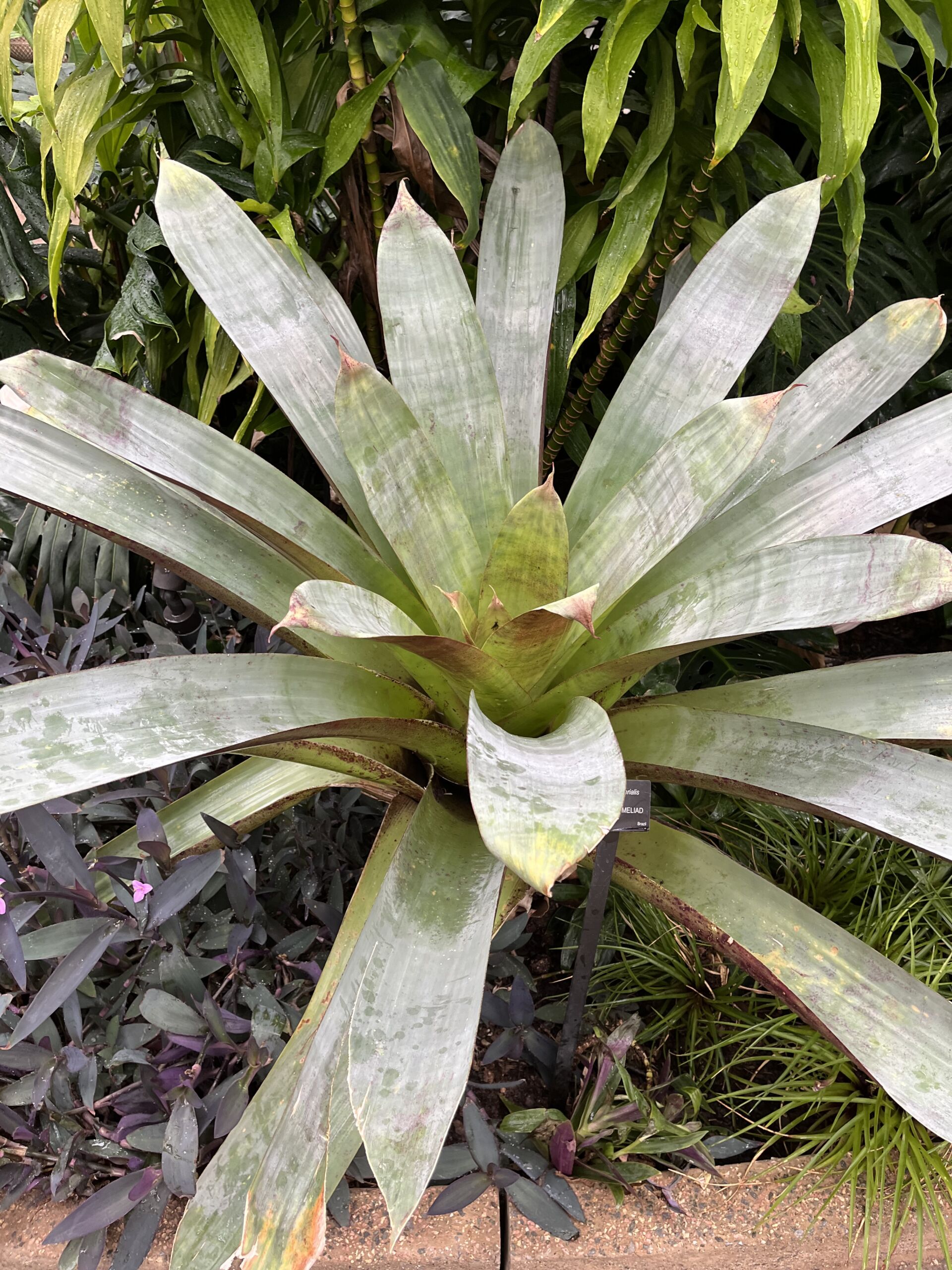
Alcantarea Imperialis aka Bromeliad (Photo by Allyssa Boerngen, Garden Horticulturist)
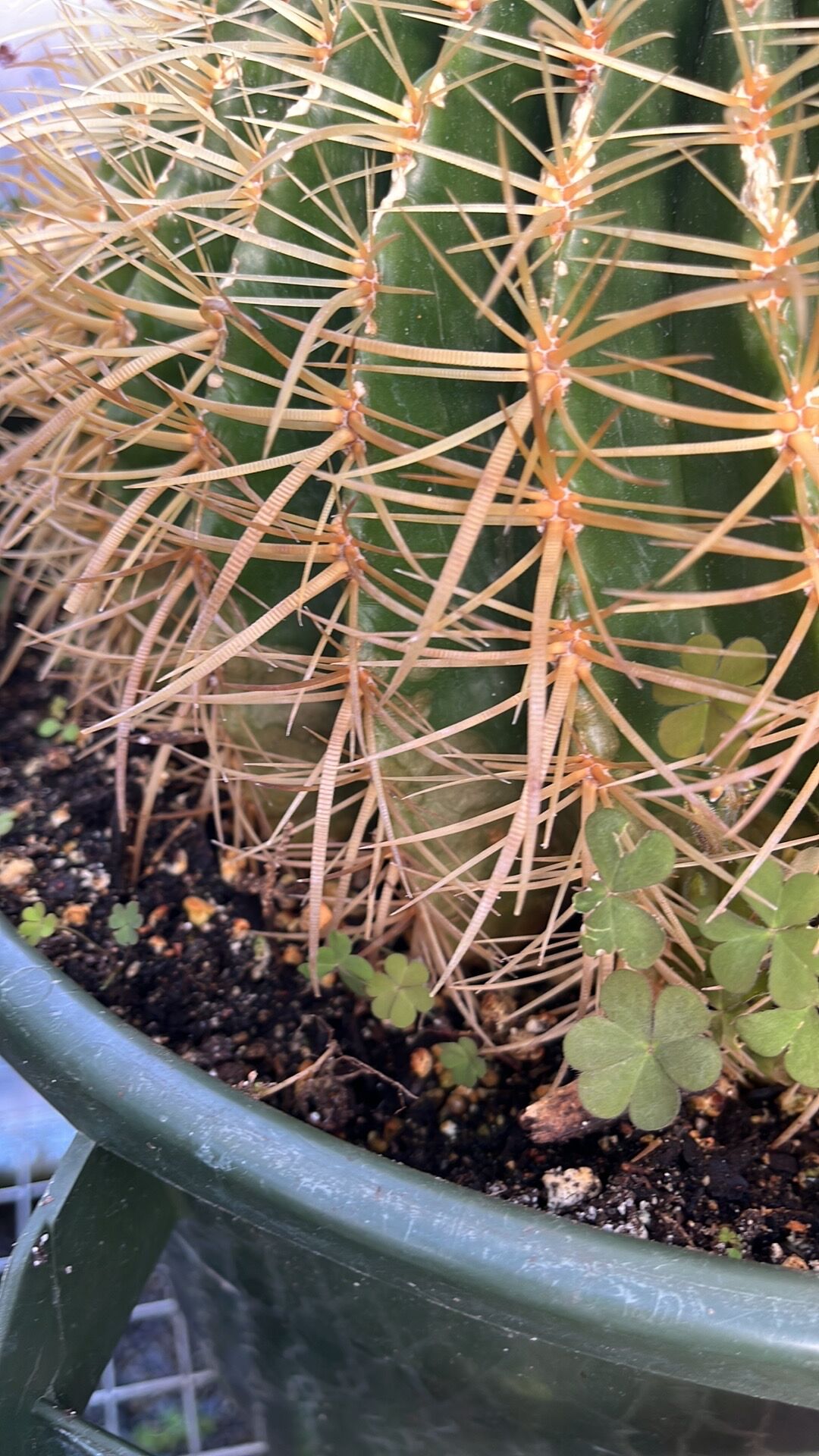
Cactus Spines (Photo by Alyssa Boerngen, Garden Horticulturist)
Forest Bathing
Are you seeking an opportunity to unplug and reconnect with the natural world around you? Join ANFT Certified Guide Angie Stegall for this soothing two-hour meditative exploration into our beautiful Williamson Conservatory during Tropical Forest Bathing. Experience a tranquil, tropical setting throughout this wellness practice and leave feeling re-centered and ready to take on the last weeks of winter.
Sip and Stroll
Wait, you say! What about tropical cocktails? We’ve got you covered, umbrellas included. Our very own Holly Frey, mixologist extraordinaire, is working on signature cocktails for the event, including, we hear, a Monstera Mai Tai, to be enjoyed with light bites at one of our scheduled Sip and Stroll events.
All proceeds from this exciting and educational two-weekend event will directly support the Williamson Conservatory, funding projects such as soil restoration, plant additions, water wall repairs and irrigation improvements.
We look forward to seeing you at the Trip To The Tropics! Pack light as we’ve got all necessities covered. We only ask that you check our website for ticket and workshop information as some events will have limited seating and require registration.
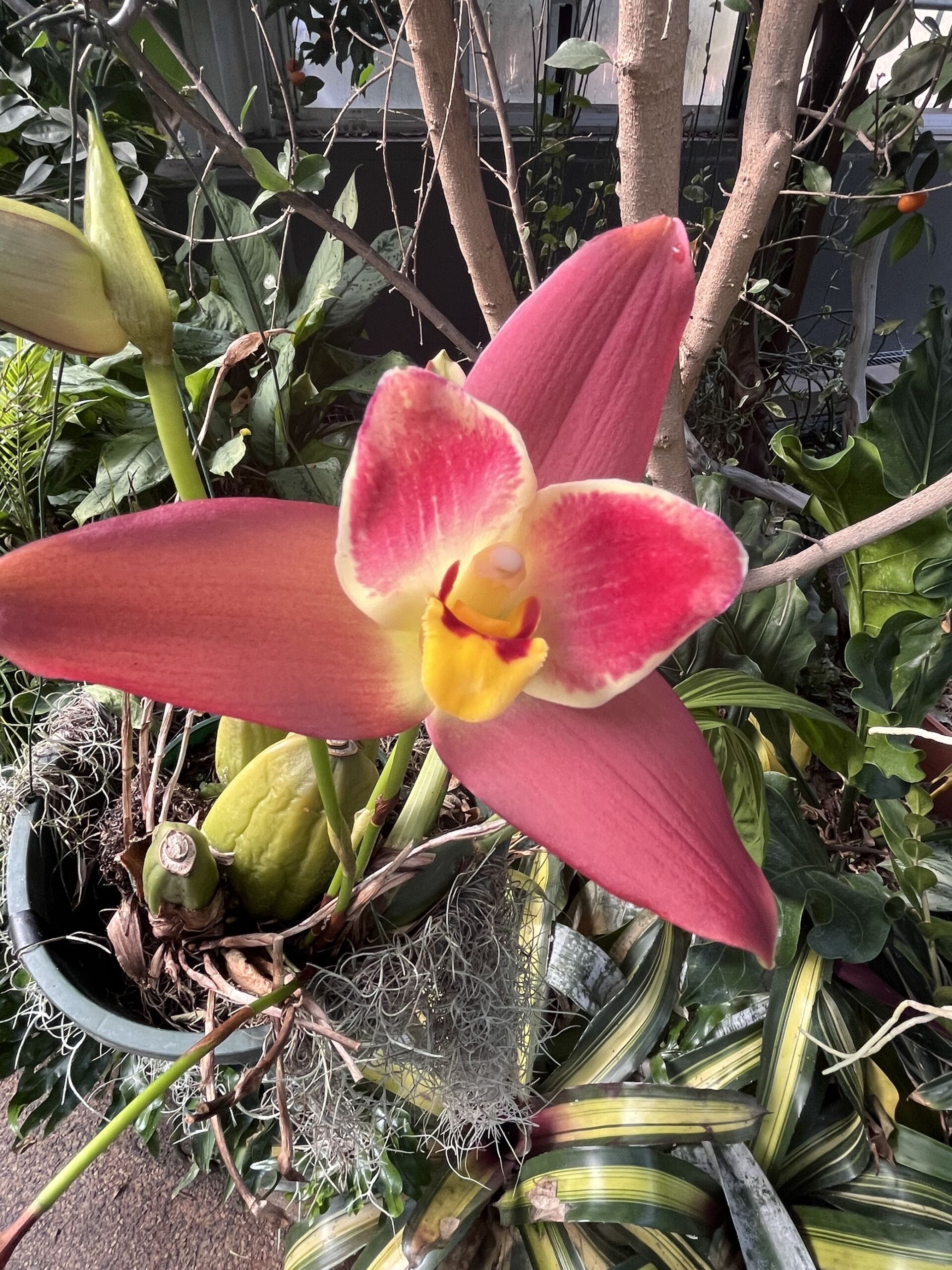
Orchid in bloom (Photo by Alyssa Boerngen, Garden Horticulturist)
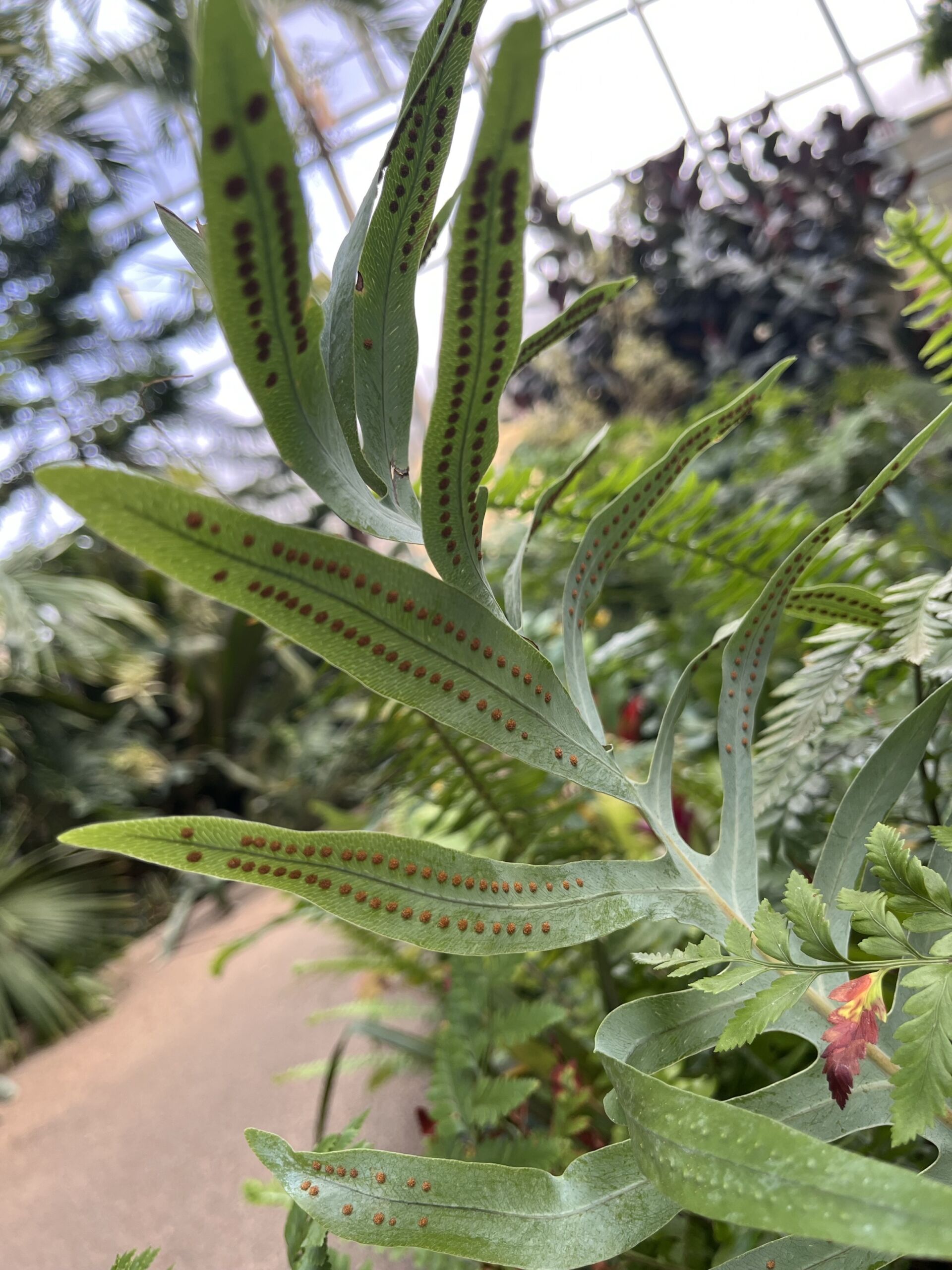
Spores on a Fern (Photo by Alyssa Boerngen, Garden Horticulturist)
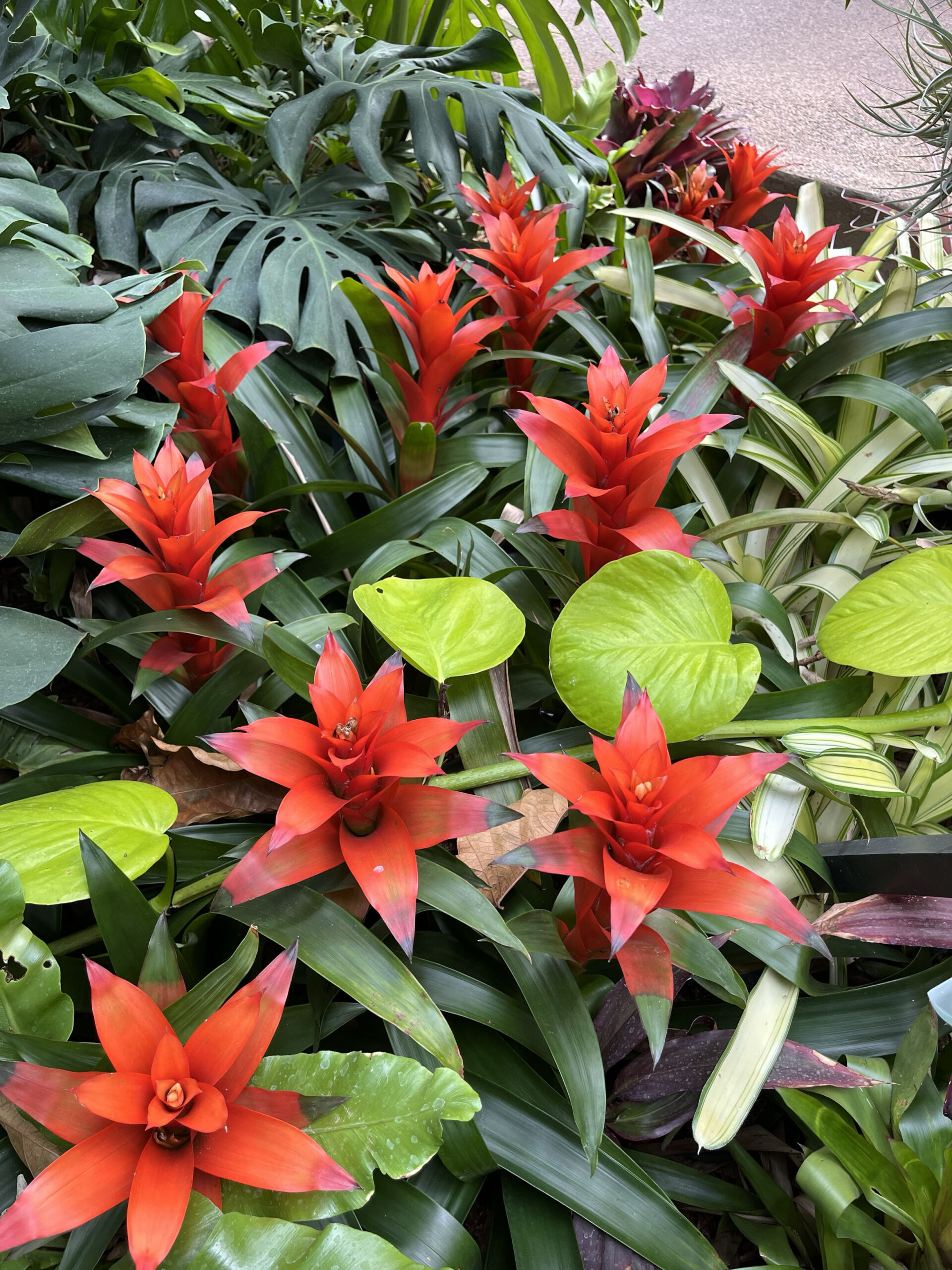
Bromeliads (Photo by Alyssa Boerngen, Garden Horticulturist)
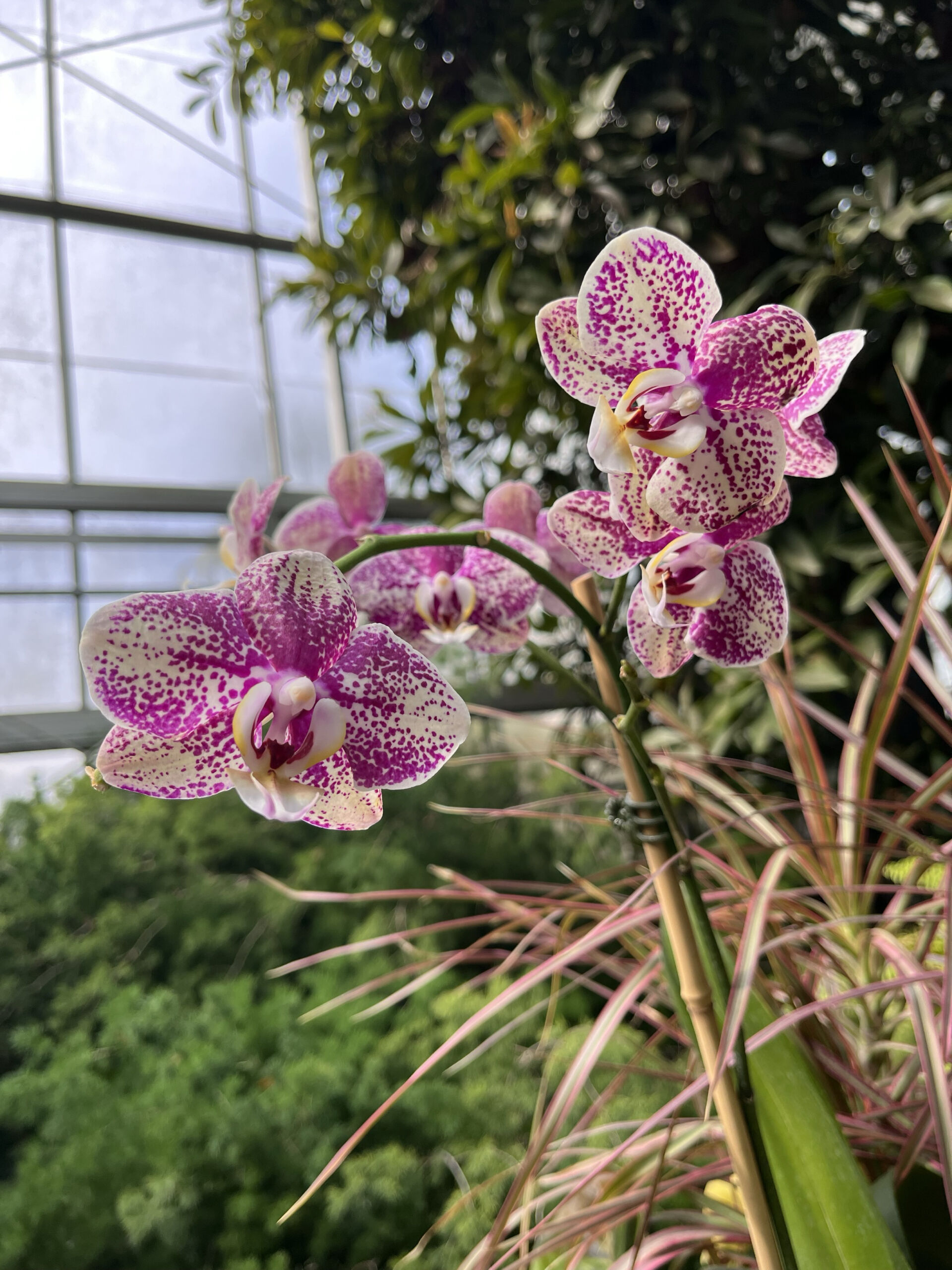
Orchids in Bloom (Photo by Alyssa Boerngen, Garden Horticulturist)


